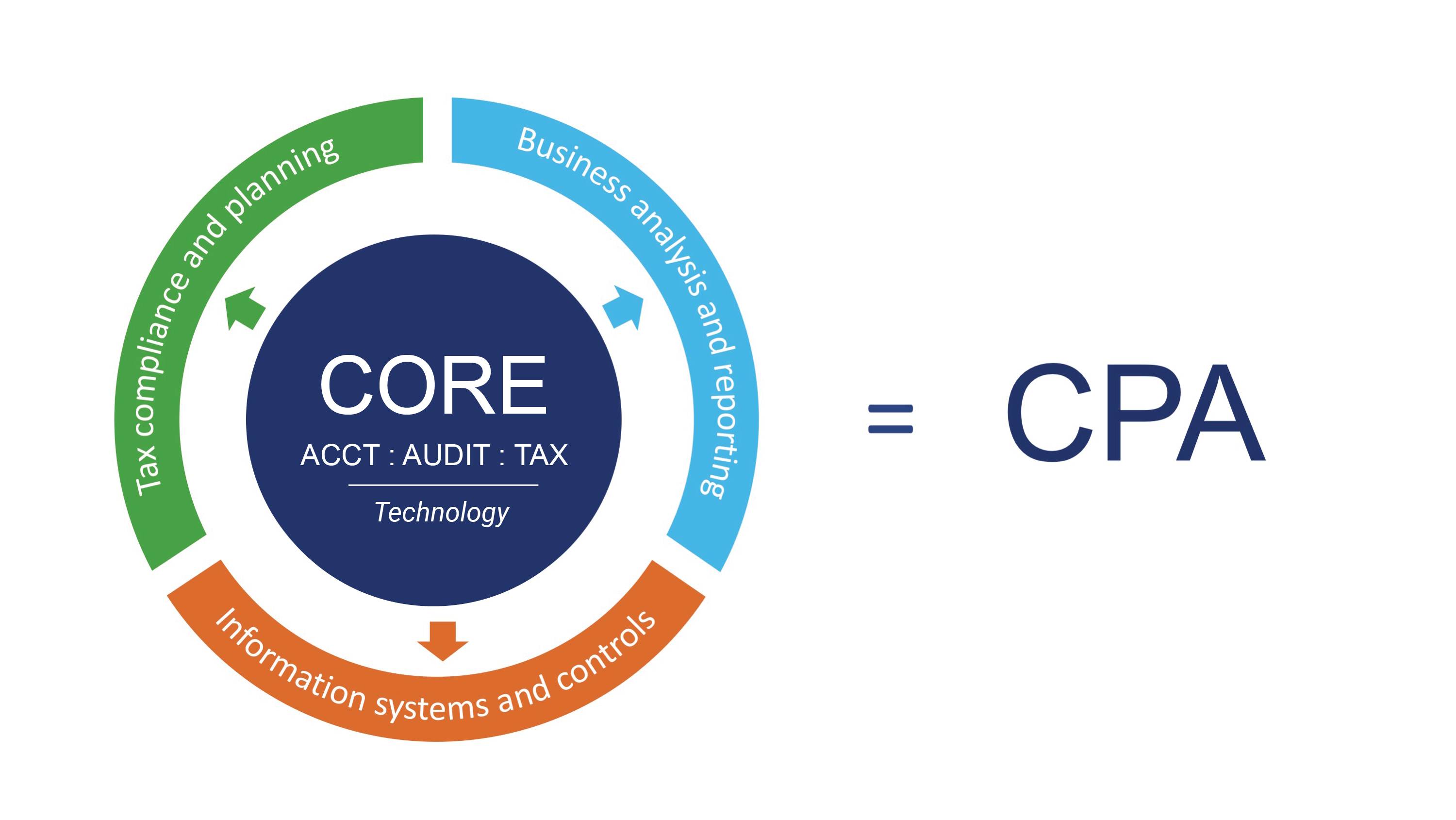Accounting Profession
120 hours to begin sitting for CPA exam & CPA Evolution 2024
Recent changes to the Texas Public Accountancy Act have generated quite a bit of excitement and some misinformation. After passage of both SB 159 and HB 797, the governor signed legislation in mid-May that will allow CPA candidates and students to begin sitting for the CPA exam when they have completed 120 hours of academic coursework & specific courses. However, 150 hours (and relevant work experience) will still be required to be licensed as a CPA.
The Texas State Board of Public Accountancy (TSBPA) has been anticipating passage of this legislation and will implement the changes effective September 1. Even with completion of 120 hours, there will be some specific course requirements that must be completed prior to sitting for the exam. Those details are being finalized by TSBPA. The Department of Accounting is monitoring these changes closely so that we can advise our students on how best to prepare for, and when to take, specific sections of the exam. "It is important for students to understand that the 120 hours is only a starting point to begin sitting for the exam. A total of 150 hours with specific courses will still be required," emphasizes Dr. Kasey Martin, MAcy Director.
The 120-hour change will allow students who are enrolled in the MAcy program to begin sitting for specific parts of the CPA exam when they believe they are best prepared. For example, a student might complete the graduate level Auditing course and then sit for the Auditing section of the exam. This should increase the probability of passing that portion of the exam because the material will be fresh in their mind. This strategy could result in MAcy students sitting for and passing multiple sections of the CPA exam before completing their degree and beginning full-time employment. "That's my plan so that I can reach my goal of becoming a CPA!" says Leonard Keelen (BBA '25). "It is so much better than before when students could not sit for the exam until they completed the 150 hours. These changes will relieve a lot of stress on students."

CPA Evolution is another newsworthy change for the profession. This is a multi-year joint initiative of the National Association of State Boards of Accountancy (NASBA) and the American Institute of Certified Public Accountants (AICPA). The CPA licensure model is being transformed to ensure that future CPAs have essential skills to meet the needs of our many constituents. Feedback from more than 3,000 stakeholders was considered along with studying licensure models of other professions. With a target implementation date of January 2024, CPAs will be licensed according to a “core plus discipline” model. The core includes accounting, auditing, tax and technology for all candidates plus deeper skills and knowledge in a candidate’s chosen discipline. The Department of Accounting has proactively reviewed our degree plans and made appropriate revisions to prepare our students for success under the new licensure model.
Another phrase being heard in the accounting profession and on campus is the CPA Pipeline. This refers to the shortage of accounting majors who will become CPAs. It has been an on-going problem for several years and developed because of many factors but was exacerbated by the COVID pandemic when many Baby Boomer CPAs chose to retire. This demographic change is being experienced by all professions. The stress on the CPA Pipeline has been exacerbated by the consistent growth in the demand for our core services (such as auditing and tax). Such strong demand is occurring while we are also growing exponentially into new service areas. The latter provides our clients with a one-stop shop for better, integrated services.
Bill Reeb, former Chair of the AICPA and Texas State alum notes, “It is, in large part, our success in the marketplace that is driving the current shortage of accountants. While this may be a difficult position for our profession to be in today, it is a great position to be in as our profession navigates into the future.”